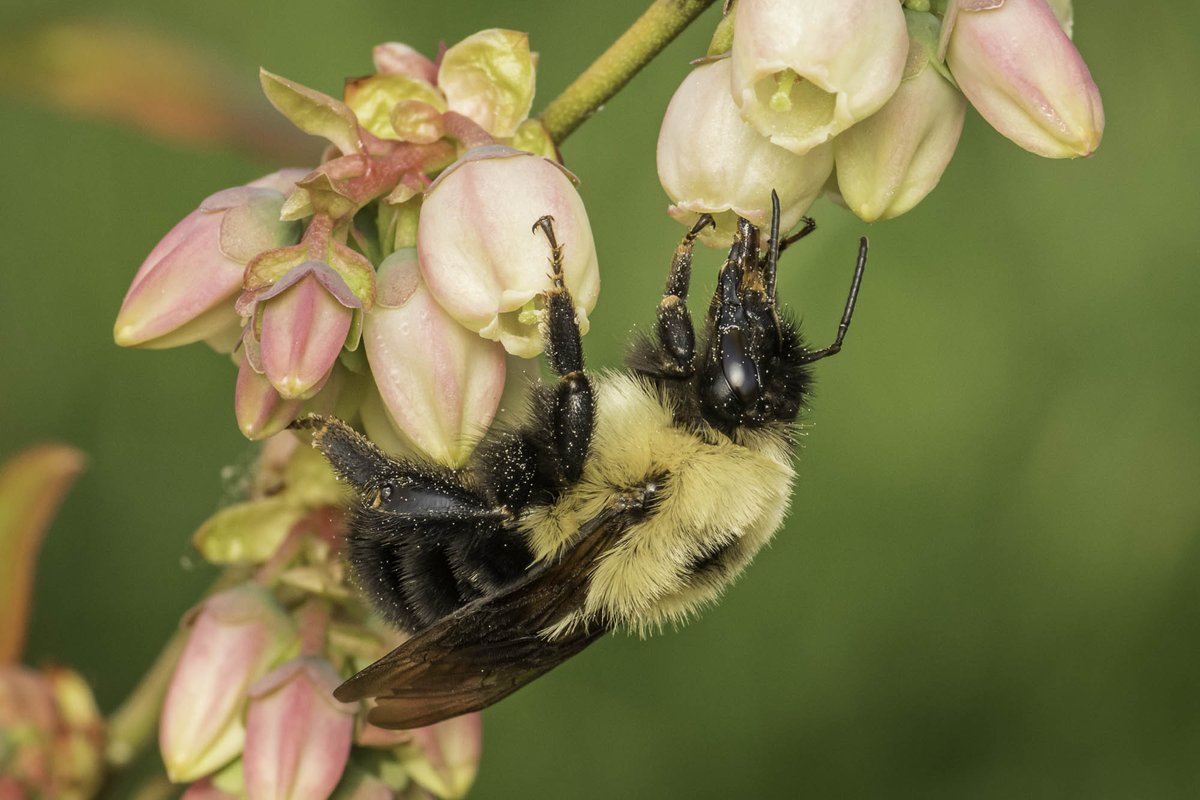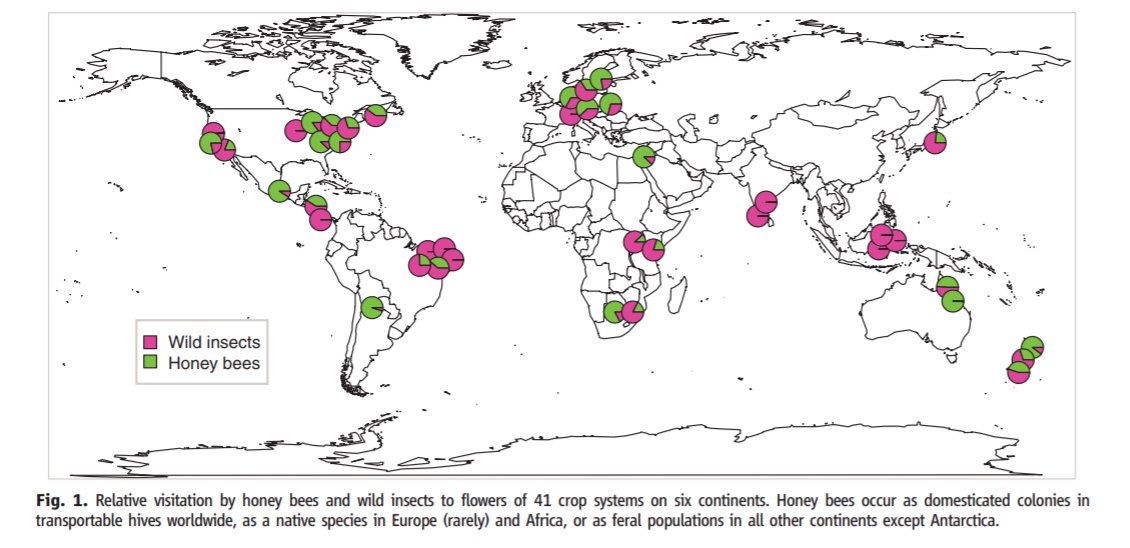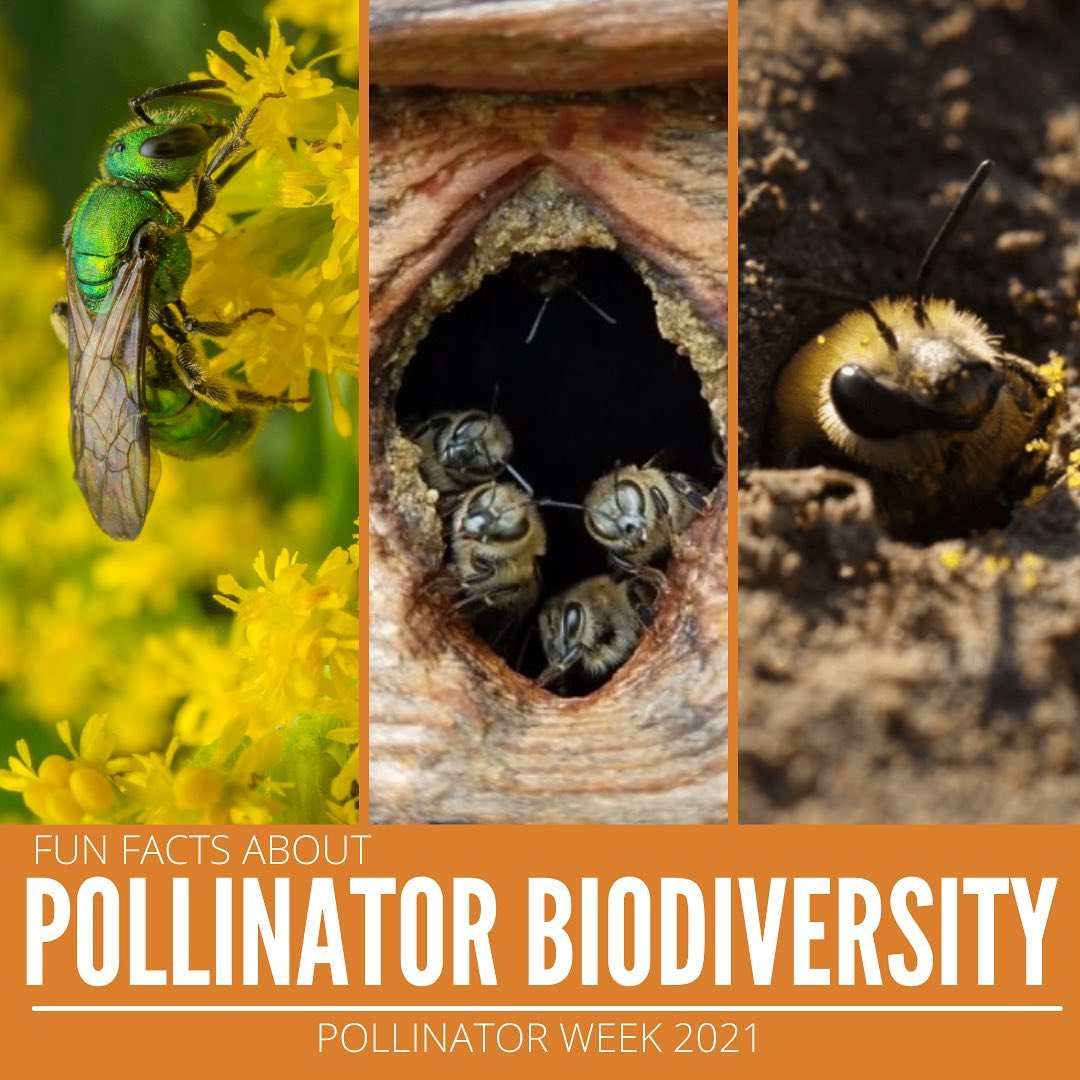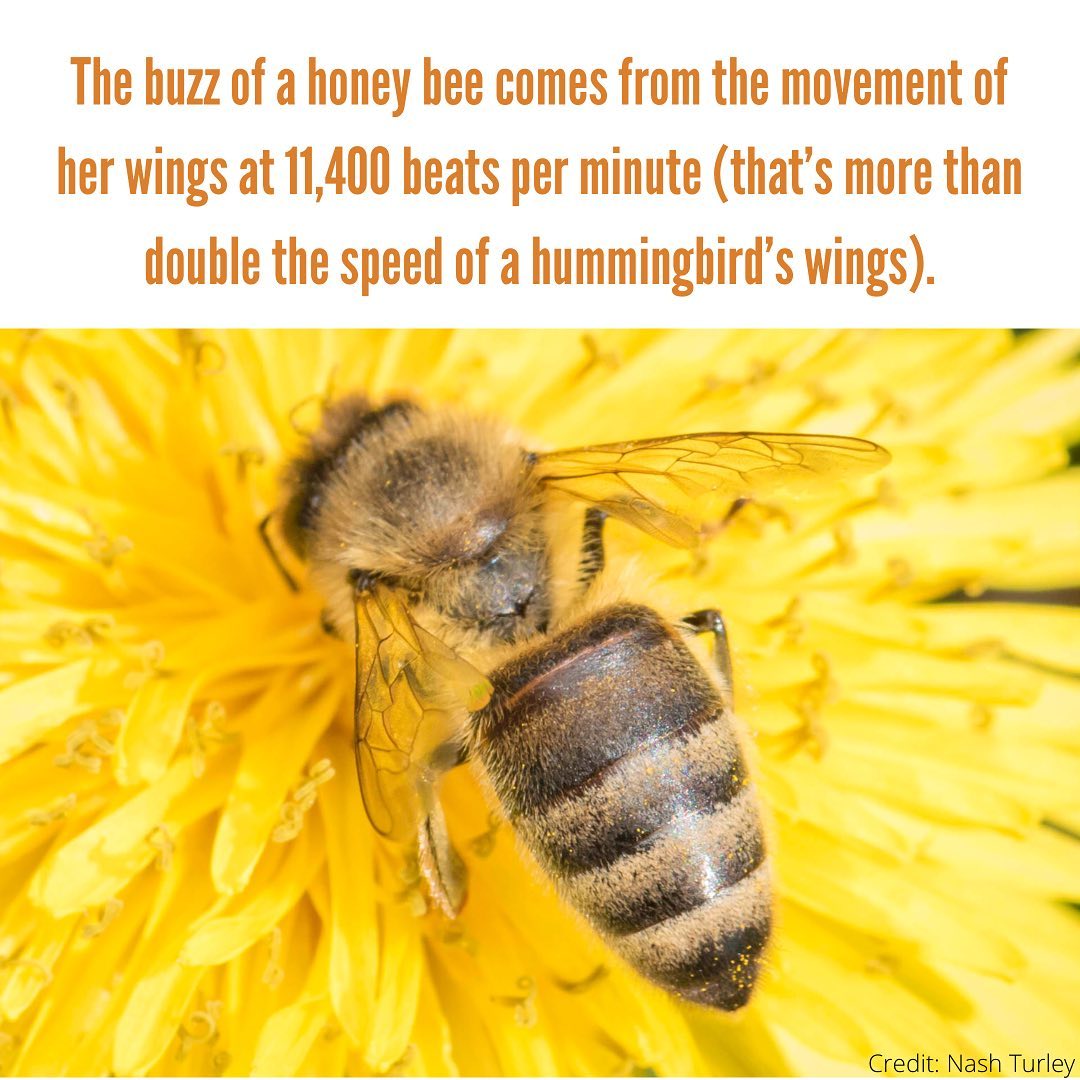
Day 3 of #PollinatorWeek and we want to highlight one reason why bee pollinators are important: they pollinate our crops and food!
Below are some fun facts about crop pollinators:
#PollinatorWeek2021
1/n
Below are some fun facts about crop pollinators:
#PollinatorWeek2021
1/n

With over 90 different crops relying on bees for their pollination services, we have to take a moment this week to thank a bee for the food on our tables.
#PollinatorWeek2021
2/n
#PollinatorWeek2021
2/n

Here are a variety of crops that 50% or more of their yield is dependent on pollinators, we would probably not have these foods without our insect friends!
#PollinatorWeek2021
3/n
#PollinatorWeek2021
3/n

Some native solitary bees have evolved very specialized relationships with crop species, like squash bees
#PollinatorWeek2021
4/n
#PollinatorWeek2021
4/n

The alfalfa leafcutter bee (Megachile rotundata) and the horn-faced bee (Osmia cornifrons) are both managed solitary bee species that were introduced to US to increase pollination of alfalfa and orchard crops
#PollinatorWeek2021
5/n
#PollinatorWeek2021
5/n

Blueberry plants are pollinated by many different bees including bumblebees and specialist like southeastern blueberry bee and two specialist mining bees.
Photos of Bombus and Andrena on blueberries by @NashTurley
#PollinatorWeek2021
6/n

Photos of Bombus and Andrena on blueberries by @NashTurley
#PollinatorWeek2021
6/n


Generalist pollinators like honey bees are capable of pollinating many crops
#PollinatorWeek2021
7/n
#PollinatorWeek2021
7/n

Some crops are not effected by pollinators at all (like corn, rice, wheat) while others can develop without pollinators but their yield is increased when they are around, like soybeans.
#PollinatorWeek2021
8/n
#PollinatorWeek2021
8/n

About 11% of all crop value in the US is thanks to pollinators, and globally pollinators contribute about $300 Billion to agriculture. journals.plos.org/plosone/articl…
#PollinatorWeek2021
9/n
#PollinatorWeek2021
9/n

A study of the impacts of pollinators on crops around the world found that wild pollinators increase yield in ALL crops systems while honey bees increased yield in only 14% of systems. science.sciencemag.org/content/339/61…
#PollinatorWeek2021
10/n
#PollinatorWeek2021
10/n

• • •
Missing some Tweet in this thread? You can try to
force a refresh












